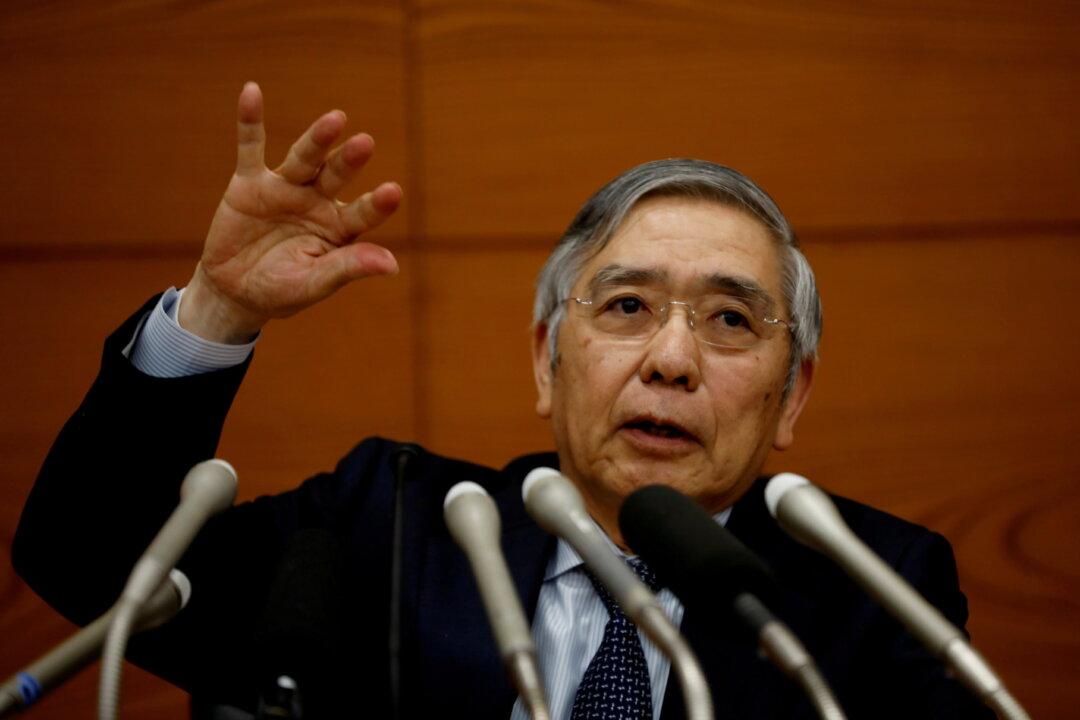
Bank of Japan Governor Haruhiko Kuroda speaks at a news conference in Tokyo, on Dec. 19, 2019. Kim Kyung-Hoon/Reuters
News Analysis
The Bank of Japan (BoJ) shocked Asian financial markets on Dec. 20 when it widened caps for a benchmark government bond yield.
